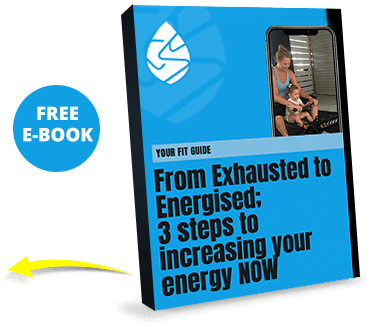
Is the daily dose of coffee doing us harm or good? Well, it’s one worth exploring, but like most things in nutrition, it comes down to quantity, timing and how your body responds.
How does it works?
The way I think of it is like a blanket. The caffeine interacts with a receptor in our brain that recognises a by-product of energy production and usually that leaves us fatigued to reduce our effort and conserve energy for survival. We don’t feel that fatigue though as it blocks the receptor, so it’s heightened alertness and improved performance and no downside, right? Like when your partner pinches the blanket at night and you’re suddenly shivering, wishing for that warmth again, caffeine has the same impact, often ‘crashing’ after its peak period reduces. For this reason, it’s recommended for shorter bouts of intense work. Perhaps your physical training or a creative session or some deep thinking work but be ready for the blanket to be ripped off and the espresso fatigue train to arrive! That’s ok then we can just have another one right?
How much is too much?
This is where quantity always plays a part in nutrition. Caffeine has been studied to the yin yang and doses of 1-3mg/kg of body weight are consistent with good health and improved mental function with minimal if any long-term side effects. The barista up the road will have about 80-100mg of caffeine per coffee shot and the average tea bag has 50mg. In English, most people are fine with a couple of shots or cups of tea per day.
What time is best?
The other variable that always plays a part in nutrition is timing. The impact of caffeine on the central nervous system is said to peak anywhere from 30-70 minutes after ingestion dependent on how full your stomach is when you drink it. Its effects can last between 3-7 hours and it is recommended that it not be consumed within an 8-hour window before our desired sleep time.
Is it right for you?
Most of us are asking a lot of ourselves across long days and with varying responsibilities could be going from one intensity to another, from home-schooling and working full time to board presentations and heavy creative work… we don’t ask less of ourselves these days!
Caffeine induces a higher heart rate and increases mental alertness, those effects are also symptoms of anxiety. If you are someone that doesn’t struggle with mental alertness or you get particularly nervous before a big event or presentation then it may be the wrong call to ramp that stimulation up. While many people may be able to have a coffee and just head off to bed, the science does suggest that it will impact the architecture of your sleep. Ie. you won’t get as deep a sleep, the important stuff for the brain and tomorrow’s performance. So it may be worth reconsidering that cup of coffee or tea for that matter (about ½ the strength of coffee in terms of caffeine) before bed.
Questions to ask yourself?
-how much am I currently drinking? Do I think that amount helps or hinders?
-what is it doing to my body, mood and performance, across the whole day?
-does it impact my sleep?
-do I need to adjust my quantity or timing to serve me better?
Just for the record, I never said you can’t have your morning coffee, I am brave but not stupid :)
Yours in health
Sean Cornish




